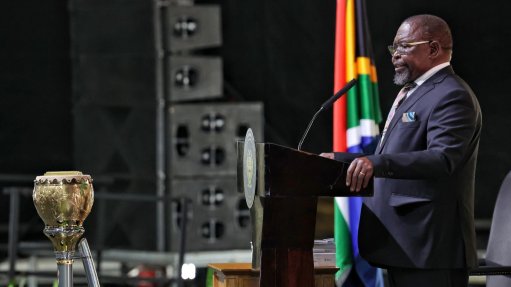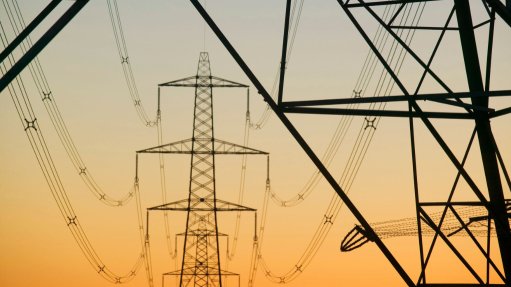Debt servicing costs contribute huge chunk of medium-term expenditure
Government’s rising debt service costs, at about R1-trillion over 2022/23 to 2024/25, are crowding out spending on service delivery functions.
Debt service costs will, on average, consume 21c of every rand collected in revenue over the medium term. These costs will average R334-billion a year.
Additionally, elevated debt redemptions will further reduce fiscal space over the medium term, as R423.4-billion of debt borrowed in previous years matures.
Much of government debt incurred since early 2020 related to Covid-19 impacts and mitigation measures; however, public debt has increased seven-fold from R577-billion in 2007/8 to over R4-trillion in 2021/22.
Government’s debt service costs will increase by 10.8% over 2021/22 to 2024/25, while spending on social development will decrease by 5.9% over the same period.
The Medium Term Budget Policy Statement (MTBPS), presented by Finance Minister Enoch Godongwana on November 11, earmarks R687-billion for economic development, R654-billion for peace and security and R209-billion for general public services.
Overall, national government is contracting non-interest expenditure resources of national departments by 1.8% a year, provincial resources by 0.7% a year and local government resources by 4.1% a year, over the next three years.
Government is allocating 48% of non-interest expenditure to national departments, 42% to provinces and 9.6% to local government.
A net addition of R59.4-billion to main budget non-interest spending is proposed in the MTBPS. Total main budget non-interest expenditure is projected to increase by R31.9-billion in 2022/23 and by R29.6-billion in 2023/24.
The 2021/22 fiscal framework includes a R3-billion contingency reserve for more vaccines and R11-billion as a provisional allocation to Sasria for risk coverage, after the public violence outbreak that resulted in damage to infrastructure in Gauteng and KwaZulu-Natal, in July. Related to this, R2.3-billion is allocated in 2021/22 to help businesses rebuild, of which R1-billion is being reprioritised from the departments of Trade, Industry and Competition and Small Business Development.
Other proposed revisions to non-interest expenditure for 2021/22 include R20-billion for wage bill adjustments, R2.9-billion for State-owned defence group Denel to settle a portion of its guaranteed debt, and R32-billion in public violence and Covid-19 fiscal relief package allocations.
Godongwana says government remains committed to narrowing the budget deficit to stabilise the debt-to-gross-domestic product ratio, mainly by controlling non-interest expenditure growth.
He admits that the fiscal outlook is highly uncertain, with major risks including the durability of the economic recovery, the legal process associated with public service compensation and future wage negotiations.
This while many State-owned enterprises and municipalities have insufficient funds to cover operational expenses.
Godongwana expects the budget to see a primary surplus – where revenue is higher than non-interest spending – by 2024/25. Gross loan debt is forecast to stabilise at 78.1% of gross domestic product in 2025/26.
The MTBPS envisions debt service costs falling below 22% of main budget revenue by 2026/27.
For context, government expenditure has exceeded revenue in every year since 2008/9. The consolidated budget has grown from R712.8-billion in 2008/9 to R2.1-trillion in 2021/22 – an average increase of 8.8% a year.
On the positive side, gross tax revenue is expected to be R120-billion higher than projected in the national Budget, in 2021/22, with corresponding improvements of almost R70-billion and R60-billion expected in 2022/23 and 2023/24, respectively, which remain below pre-pandemic levels.
Article Enquiry
Email Article
Save Article
Feedback
To advertise email advertising@creamermedia.co.za or click here
Announcements
What's On
Subscribe to improve your user experience...
Option 1 (equivalent of R125 a month):
Receive a weekly copy of Creamer Media's Engineering News & Mining Weekly magazine
(print copy for those in South Africa and e-magazine for those outside of South Africa)
Receive daily email newsletters
Access to full search results
Access archive of magazine back copies
Access to Projects in Progress
Access to ONE Research Report of your choice in PDF format
Option 2 (equivalent of R375 a month):
All benefits from Option 1
PLUS
Access to Creamer Media's Research Channel Africa for ALL Research Reports, in PDF format, on various industrial and mining sectors
including Electricity; Water; Energy Transition; Hydrogen; Roads, Rail and Ports; Coal; Gold; Platinum; Battery Metals; etc.
Already a subscriber?
Forgotten your password?
Receive weekly copy of Creamer Media's Engineering News & Mining Weekly magazine (print copy for those in South Africa and e-magazine for those outside of South Africa)
➕
Recieve daily email newsletters
➕
Access to full search results
➕
Access archive of magazine back copies
➕
Access to Projects in Progress
➕
Access to ONE Research Report of your choice in PDF format
RESEARCH CHANNEL AFRICA
R4500 (equivalent of R375 a month)
SUBSCRIBEAll benefits from Option 1
➕
Access to Creamer Media's Research Channel Africa for ALL Research Reports on various industrial and mining sectors, in PDF format, including on:
Electricity
➕
Water
➕
Energy Transition
➕
Hydrogen
➕
Roads, Rail and Ports
➕
Coal
➕
Gold
➕
Platinum
➕
Battery Metals
➕
etc.
Receive all benefits from Option 1 or Option 2 delivered to numerous people at your company
➕
Multiple User names and Passwords for simultaneous log-ins
➕
Intranet integration access to all in your organisation

















